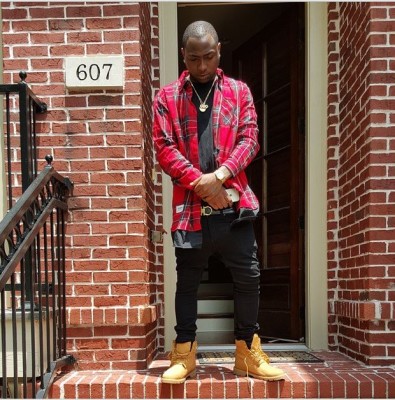 |
| OBRAFOUR |
Kwabena Okyere Darko aka Obrafour, who hails from Kwawu in the eastern region was born in 1978. His spent his early childhood at Kwawu and when he was 5 years old, he left for Accra to live with his parents.
Obrafuor who attended New Star Preparatory and then proceeded to Abetifi Secondary and St. Peter's Secondary School was born in real life as Michael Elliot Kwabena Okyere Darko in 1976 to Mr. Kwaku Okyere Darko and Mrs. Gladys Agyapomaa in Kwahu-Obo.
At the age of 8, Obrafuor sang with his late mum at church. "Sometimes I sang along with my mum whilst she was working and to tell you I partially music was part of me at a tender age.
I never dreamt of becoming a musician rather it was my dream to become a lawyer since my grand dad was a lawyer" he said.
Obrafour had his secondary school education at Abetifi. After one term at St. Peters where he was being trained for his A Level, he dropped out in 1995 when his mother died.
Obrafour believes that he was born with music. His mum was a chorister. At the age of 4, he watched her mum sing at church with keen interest. It got to a time that she would invite him to church to sing with her.
When he was in secondary school, he formed a quartet and they were doing Gospel songs until his mum passed away.
“I want to have the most decent lyrics of all-time”. In a time where musicians join the hiplife trade almost weekly, it has a tough act to stay different and ahead of the game. Kwabena Okyere Darko, popularly known as Obrafour (Twi for executioner), has carved a niche for himself as one of the hiplife legends and a mainstay in Ghanaian music. Obrafour, the Rap SofoO (Rap Priest) has transcended the boundaries of music by producing fellow artistes and appealing to all and sundry with the breadth of his lyrics and messages and songs.
Obrafour was born to Mr. Kwaku Okyere Darko and Mrs. Gladys Agyapomaa in Kwahu-Obo in 1978.
He grew up in Kwawu and settled in Accra later. For his education, he went to New Star Preparatory, continued at Abeitifi Secondary School and pursued his A-level education at St. Peters’ Secondary at Nkwatia. His mother’s death in 1995 caused him to drop out. He had been nursing a dream of becoming a lawyer (after his grandfather). Unable to continue his education, he took up another interest of his, music.
Obrafour grew up with music. He was influenced by his mother, who sang in the local church choir. He then got the chance to sing at church at his mother’s invitation and as fate would have it, he formed a quartet during his secondary school which performed Gospel songs. His mum’s death caused him to stop singing.
Through some encouragement by some friends, he decided to take up music more seriously. At that time, Reggie Rockstone, the Godfather of hiplife, had released his successful “Maka a maka” album and Obrafour was inspired. He had also realized the emergence of artistes like Ex Doe, Chicago, Akyeame, and Lord Kenya, etc.
He decided to be different from these pioneers and create his own style. As he began attending various auditions and performances, he met a few bumps and setbacks until he met Edward Nana Poku Osei aka Hammer. Hammer was an amateur beat maker and did not take the music business seriously until he met Obrafour. From Hammer’s own words, they ‘clicked’. For Obrafour and Hammer (the Last 2) fans, the rest is history.
But the common Joe needs to know. Hammer helped Obrafour secure a deal with Abraham Ohene Djan (OM Studios) and in late 1999, Obrafour’s first album, ‘Pae mu ka’ was produced and distributed. The album was an acclaimed success and a breadth of fresh air on the music scene. One of the songs, ‘Kwame Nkrumah’ paid a resounding tribute to the Osagyefo and encouraged Ghanaians to unite and work for the best of the country. ‘Pae mu ka’ covered various aspects of entertainment of society with songs like the title track, ‘Yaanom (announcing his presence), ‘Aden’ (talked about life’s struggles), ‘Agoro no aso’ (party song), and ‘Kokonsa’ (gossip). The album enjoyed a lot of airplay that to this day, the “intro and outro” tracks are still played during radio programmes.
As if to indicate the importance of Obrafour’s entry into the music scene, he was adjudged the rapper of the year, new artiste of the year and best hiplife song for ‘Pae mu ka’ at the 2000 Ghana Music Awards. “Pae mu ka” is widely acclaimed as the best hiplife album ever produced. Obrafour’s success paved the way for Hammer to become one of Ghana’s premier beat makers as well.
In 2001, Obrafour released his second album, ‘Asem sebe’. Recognising his love for gospel music, he had as part of this album, the first ever rap gospel song (EnyE Nyame a) in Ghana. His premier effort caused a lot of deejays headaches, not sure whether to play the song during gospel or hiplife (or even highlife) shows. In keeping to his decency and love for socially conscious songs, ‘Obibini (black man) implored Africans to stand up for their motherland and work to develop it. ‘Okwantuni’ asked sojourners in foreign countries to stay in touch with their roots and come home if they were struggling since their home would always be ‘home’. ‘Who born you by mistake’, ‘Asem sebe’ and ‘Twe wo ho’ enjoyed massive airplay, and the album had other songs like ‘Odo’, ‘Bra be hwe’ and ‘Okukuseku’. Obrafour sought the assistance of other beat makers than Hammer and had a few songs with the highlife vein. Even though his sophomore effort could not outclass ‘Pae mu ka’, it sold many more copies.
Kwabena Okyere Darko did not forget the hand that fed him and made him what he was then. In another first, he came out with a maxi single album, that remembered the love and influence of his mother while praising and underlying the importance of mothers all over. Featuring Tic Tac and Yoggi Doggi on a remix, he released his ‘Maame’ single in 2002.
To this day, ‘Maame’ is a Ghanaian music favourite that rules the airwaves each Mother’s day. The album also had a song he did jointly with Tic Tac for Ashfoam which was very successful.
Obrafour does not consider Maame a ‘full’ album, and his third LP was released in early 2003 under the name ‘Time Out for Adhesion (TOFA)’. In this album, Obrafour’s love for singing is heavily noticed. He had a song duet with longtime backup singer, Adjoa, called ‘Dee dee ko’. Songs like ‘Nyamekye’ and ‘Sete’ are favourites of many highlife music lovers. He did not disappoint his hiplife fan base, as ‘Oye Ohene’ (He is a king), ‘Adefoode’, ‘Ebehyehyew’ (It will burn you) were chart busters. Other songs on the album were ‘Mensesa da’ (I will never change), ‘AkokOnini’, ‘Hini me’, and ‘OyonkoO’ (friend). ‘TOFA’ had very good sales following the success of his other LPs.
As if Obrafour could not fall short of pacesetting, he decided to release another album in the same calendar year. His ‘fourth’ LP, ‘NteteE Pa’, came out in late 2003 with a number of remixes from the ‘TOFA’ album. The lead single, however, was ‘Nya NteteE Pa’ (Be disciplined) which coincided with his effort to join Ghana’s vice president to fight indiscipline in the country. ‘Nya NteteE Pa’ is the writer’s favourite song and the most lyrically involving song to ever come from hiplife’s ranks. It was voted by the song of the 2003 by Joy FM listeners and Obrafour’s legendary was magnified. It also won the best original song (lyrics) at the 2003 Ghana Music Awards. ‘Ntetee Pa’ won the album of the year at the Ghana Music Awards UK for 2004. Other songs on the album were ‘Oye Ohene Remix’ featuring Tinny (one of the best remixes ever), ‘Who Jah Bless’, ‘Sete remix’, ‘Monfa nsa’ (Dance with it), and ‘Obaa bi’ (a certain girl).
SOURCE:peacefmonline



![KONANA - Nnaase3 Asore [with KING VUVU]](https://blogger.googleusercontent.com/img/b/R29vZ2xl/AVvXsEhpIsG7NOEptSZ9CwuMGNUWJc1plPNqGzuw-NxZDOhgFl3qf3ryi8hvz-AMY2QhNV7NWsMmYpyR3hR0fTqQGyQGWo6F-BP97XbJ6j97K-MdCB7lLtzLmgNilP-4PMwMa5rnkiTRJaYqCuwo/w680/Konana.jpg)



.png)




![KONANA - Nnaase3 Asore [with KING VUVU]](https://blogger.googleusercontent.com/img/b/R29vZ2xl/AVvXsEhpIsG7NOEptSZ9CwuMGNUWJc1plPNqGzuw-NxZDOhgFl3qf3ryi8hvz-AMY2QhNV7NWsMmYpyR3hR0fTqQGyQGWo6F-BP97XbJ6j97K-MdCB7lLtzLmgNilP-4PMwMa5rnkiTRJaYqCuwo/w100/Konana.jpg)
